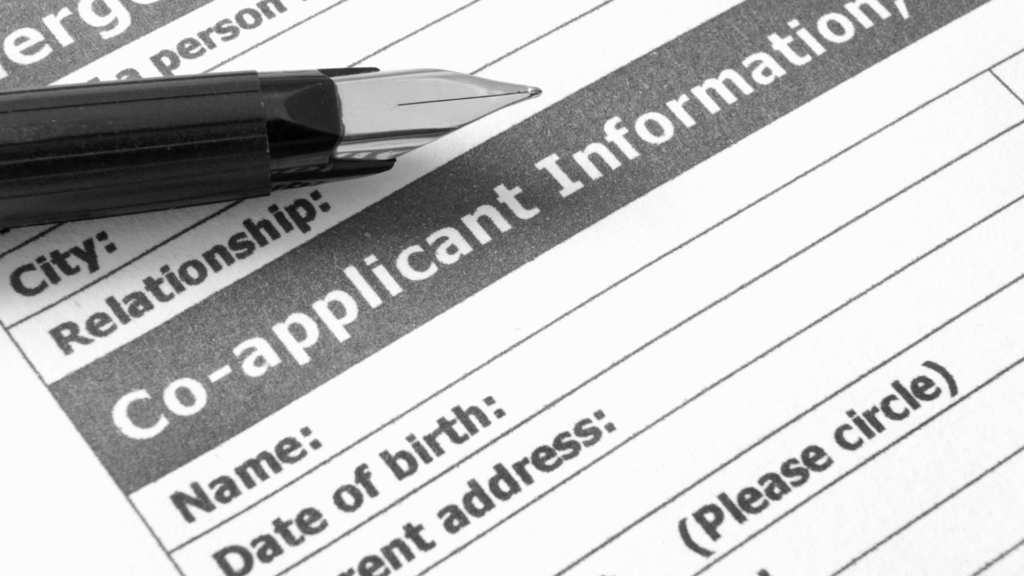When you’re dreaming of buying a new home, one of the biggest questions is: “Will my loan be approved for the amount I need?” For many couples, the answer lies in a powerful financial strategy: adding a co-applicant for home loan applications. By joining forces with your spouse, you can significantly enhance your eligibility, unlock a larger loan amount, and make your dream home a reality.
This guide will explore the strategic advantages of adding your spouse as a co-applicant. We’ll cover everything from how it boosts your eligibility to the tax benefits you can enjoy together, providing a clear roadmap for your joint home-buying journey.
Understanding the Role of a Co-Applicant
A co-applicant, or a co-borrower, is a person who applies for a loan along with the primary applicant. Both individuals are equally responsible for repaying the loan. Lenders consider the income and credit history of both applicants, which can make the application much stronger.

The Key Benefits of Adding Your Spouse as a Co-Applicant
A Significant Boost to Your Home Loan Eligibility
This is the most significant advantage. When you apply with your spouse, the lender combines both your incomes to calculate your eligibility.
This higher combined income can lead to a much larger loan amount, allowing you to afford a better home. This is especially beneficial for the “Metro Upgrader” looking for a premium property.
Improved Chances of Loan Approval
If one applicant has a lower CIBIL score, a spouse with a strong credit history can balance it out, increasing the chances of approval. This directly addresses the “Fear of loan rejection” that many first-time buyers have.
Sharing the Financial Responsibility
A home loan is a long-term commitment. By sharing the EMI burden, you can reduce the financial strain on a single person and manage your household finances more comfortably.
Unlocking Tax Benefits for Both
Under Section 80C and Section 24 of the Income Tax Act, both co-applicants can claim tax deductions on the principal and interest paid, provided they are also co-owners of the property. This can lead to significant tax savings for the family.
Important Considerations Before You Apply
Credit Score Impact:
Remember that the loan will reflect on both your credit reports. Any missed payments will negatively affect both your CIBIL score.
Co-Ownership of Property:
In most cases, lenders require the co-applicant to be a co-owner of the property. This is an important legal consideration.
Long-Term Commitment:
A joint home loan is a long-term financial partnership. It’s essential to have a clear understanding and agreement with your spouse before proceeding.

How MyLoanMantra Can Guide You
Deciding to take a joint home loan is a big step. You need a guide or a mentor who can provide clear, unbiased advice. This is where MyLoanMantra comes in.
We act as your personal financial advisor, helping you:
Assess Your Joint Eligibility:
We analyse your combined income and credit profiles to give you a clear picture of your loan eligibility.
Navigate the Paperwork:
We handle the “Hassle Factor” of documentation for both applicants, ensuring a smooth process.
Structure Your Loan for Maximum Benefit:
We help you understand the nuances of co-ownership and tax implications, providing a “concierge” service for your financial needs.
In summary, adding your spouse as a co-applicant for a home loan is a powerful strategy to enhance your financial standing in the eyes of lenders. By combining incomes, you can significantly boost your loan eligibility, which often translates to being able to afford a better or more spacious home.
This approach not only increases the likelihood of loan approval, especially if one partner has a weaker credit profile, but also allows both individuals to benefit from tax deductions, making it a financially prudent choice for many families.
However, it’s crucial to remember that a joint home loan is a shared responsibility that impacts both individuals’ credit histories and typically requires co-ownership of the property.
It is a long-term commitment that necessitates open communication and mutual agreement. By carefully considering these factors and seeking expert advice, couples can leverage the co-applicant advantage to confidently take a significant step forward in their journey to homeownership.
Additional Resources
- Income Tax Department of India – Tax Benefits on Home Loans: https://www.incometaxindia.gov.in/
- Reserve Bank of India (RBI) – Guidelines on Loans and Advances: https://www.rbi.org.in/
- National Housing Bank (NHB) – Policies & Guidelines: https://nhb.org.in/
- CIBIL – Understanding Your Credit Score: https://www.cibil.com/







